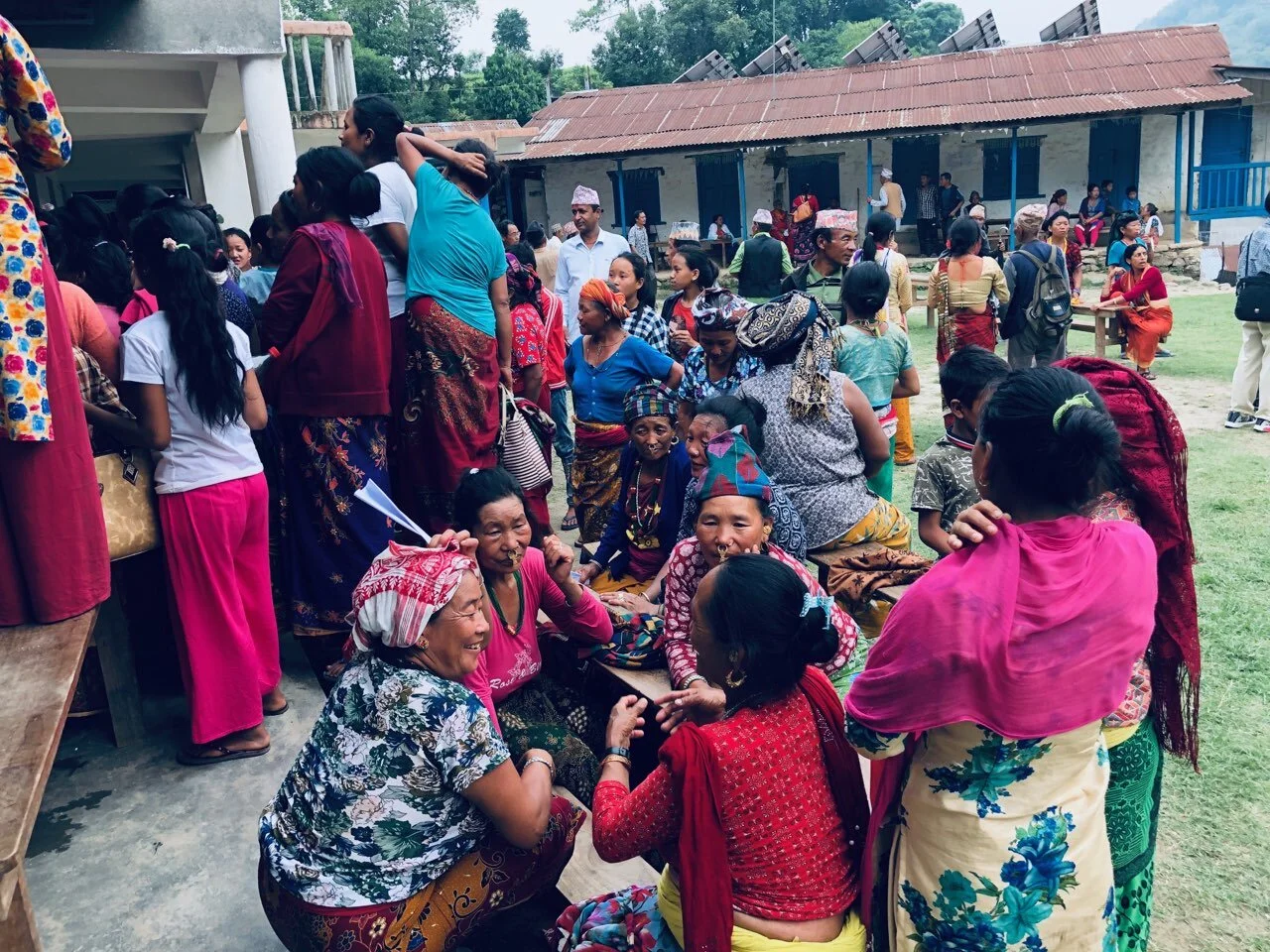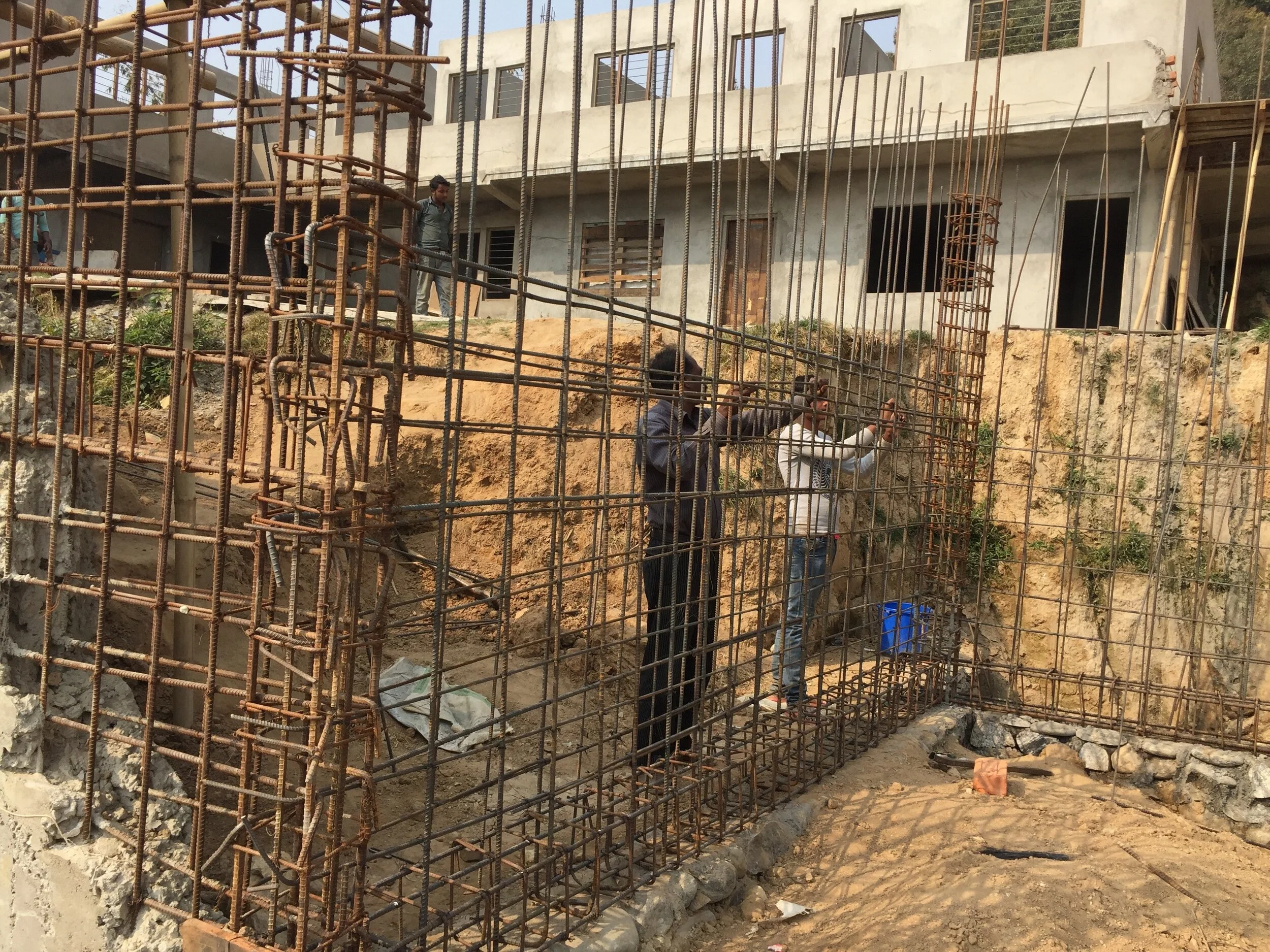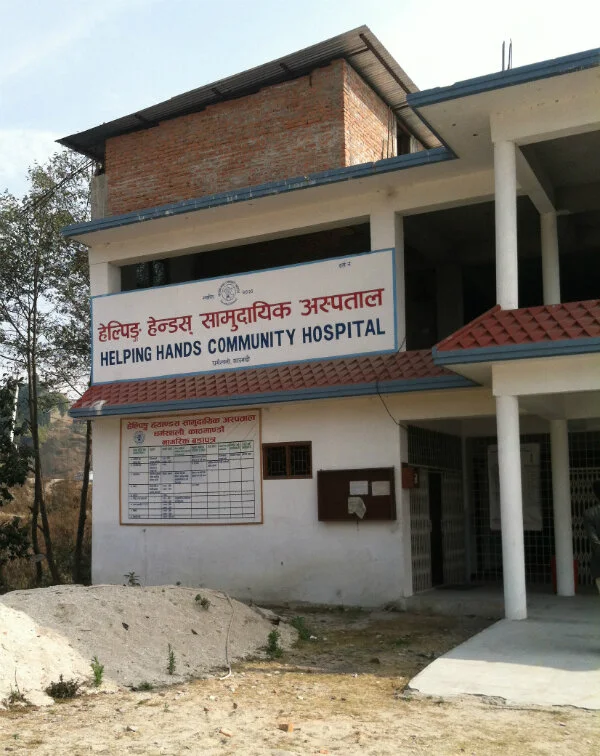School construction in Nicaragua
About our work
Helping Hands Health Education (HHHE) is a registered 501(c)(3) non-profit organization founded in 1992 by Colorado businessman and philanthropist Narayan Shrestha. HHHE’s mission is to provide sustainable health and education services to children and adults throughout the world without personal, religious, or political prejudice. Under the direction of Mr. Shrestha, HHHE has leveraged local relationships and intimate understanding of language, cultural, and political circumstances to create viable solutions at the community level for addressing significant disparities in both health and education. With an initial focus on Nepal, HHHE has expanded its work to include other nations in Asia, Africa, and Latin America.
Narayan Shrestha’s visionary ideas involved bringing seed-money and expertise from international donors and volunteers to work with municipal and state governments, communities, and local health and education professionals to assess needs and develop economically viable and self-sustaining solutions that are appropriate for individual communities. The result has been hospitals, clinics, schools, and drinking water projects that began with local and foreign collaboration that now support adults, children, villages, and local economies by educating and employing homegrown talent.
One of Helping Hands’ primary functions is to provide volunteer opportunities for medical professionals, medical students, and non-medical volunteers to serve in Nepal. As part of their experience, medical students are supervised by a licensed doctor from either the US or Nepal, depending on the time of year they volunteer. Volunteers can work in permanent clinics near Kathmandu or in a rural area, or in one of the mobile health camps that are organized throughout the year.
In Nepal, Helping Hands has established a number of permanent clinics. In Kathmandu, Helping Hands founded a 100-bed general hospital. It also started a smaller clinic in Chainpur in eastern Nepal.
The permanent hospitals and clinics provide a wide variety of services, including general outpatient care, surgery, OBGYN, pediatric care, dentistry, ultrasounds and x-rays, and family planning. Medical professionals with specializations in these fields are encouraged to volunteer. Helping Hands welcomes Family Physicians, dentists, pediatricians, OBGYNs, surgeons, internal medicine physicians, lab technicians, anesthesiologists, medical assistants, and registered nurses to apply to volunteer. Medical students also receive supervision by a licensed physician. Helping Hands offers volunteers a unique opportunity to gain first hand experience in global health in a low-resource setting.
Helping Hands Health Education also arranges educational or leisure treks, tours, and home-stays for the enrichment of volunteers’ experiences and to become familiar with the culture, environment, and people of Nepal. These programs are intended to stimulate the local economy and promote environmental stewardship.
Our history
Helping Hands was established by Mr. Narayan Shrestha, a businessman and philanthropist in Boulder, Colorado. Mr. Shrestha is a native Nepali who migrated to the United States in the mid-1970’s and gradually started a number of small businesses. As his success grew, he became inspired to give something back to the people of his home village of Khandbari in eastern Nepal.
In 1986, Mr. Shrestha decided to make a trip to his home town of Khandbari. He had arranged a trek for interested Americans who would go on a vacation during his trip. Several doctors and nurses happened to be vacationing on the trek. On the way the team ran into a child along the trail with a stick penetrating his chin and coming out of his mouth. It had been there for seven days and no one could remove it because his face was so infected and swollen. The doctors spent a night there, removed the stick, stitched and treated the wound. This gave the impetus for the seeds of Helping Hands to be sown. Mr. Shrestha thought of organizing treks for western medical volunteers who would help out in the villages while in Nepal and also enjoy a trek in the Himalayas. Thus, the motto of the organization was set as: “you give something to our village people and in exchange we will arrange you to trek and tour this beautiful country”.
On several trips back to Nepal after this first return trip, it was very apparent to Mr. Shrestha, that medical conditions in Nepal had not changed in the ten years since he had been gone; in fact, health conditions and the availability of reliable health care had deteriorated. After his encounters with numerous Nepalese who were in dire need of medical attention, Mr. Shrestha vowed to bring help from western medical professionals, and decided to dedicate much of his time and boundless energy to help people of Nepal.
In 1988, he fulfilled his promise to the people of Khandbari and brought in a team of doctors, nurses and pediatricians from America. They trekked for five days and set up a week long health clinic in the village. Thus, the mission of Helping Hands Health Education was set. It was formed with the main objective of serving the people of Nepal in the health sector.
The success of the first trip in 1988 caught the attention of the then Minister of Local Development, who asked if there would be an opportunity for western medical personnel to aid the regional clinic in Bandipur. Through the work of several volunteers and numerous local Nepali staff, the first official Helping Hands visit to Bandipur took place in October of 1992. The organized group of health care professionals, which went to Nepal in October of 1992, treated almost 2,000 patients. Due to the need for medical help in rural Nepal, the demand for our program grew and by year 2003 we conducted around seven mobile health camps in seven different villages in a year.
Since its founding, the organization has taken more than 1,000 doctors, nurses, physical assistants, medical students and-non medical volunteers from the western world to provide health care and health education in Nepal. The services of the volunteers and our local team in Nepal have reached more than 350,000 rural inhabitants of Nepal.
While the focus of Helping Hands is to deliver primary care to the people of Nepal and to help train resident medical personnel, we hope to move towards improving the general health awareness of the mountain villages with an emphasis on prevention. Our intention is to organize nine trips each year with a concentration on health specialties varying with each trip. We rely on our volunteers to be responsible for bringing their own supplies, medicines, and equipment for their use during the clinic
Helping Hands has been very successful with its primary care clinics and would like to see more specialty clinics such as surgery, dentistry, women’s health, ophthalmology, etc. Helping Hands would not exist without the hundreds of volunteers who have dedicated their hearts, time, and skills to the people of Nepal.
We thank all our volunteers and can only hope to increase our medical efforts in Nepal.
ACCOMPLISHMENTS, BY THE NUMBERS
270 temporary mobile clinics conducted
3 permanent medical facilities in Nepal
700 patients served daily in Nepal
650 students attend Surya Boarding school in Khandbari, Nepal
380 long-term shelter homes for earthquake survivors in Nepal
CURRENT PROJECTS
New rural hospital serving Chainpur community in Eastern Nepal
New Montessori program at the Surya School in Khandbari, Nepal
Rural outreach clinics with remote medical camps in Himalayan Foothills
Eyeglasses Distribution
Women’s health initiative in rural Nepal
Semester in Nepal Study Abroad Program
Tribhuvan University and US International Studies Exchange Program
Helping Hands Community Hospital in Kathmandu



